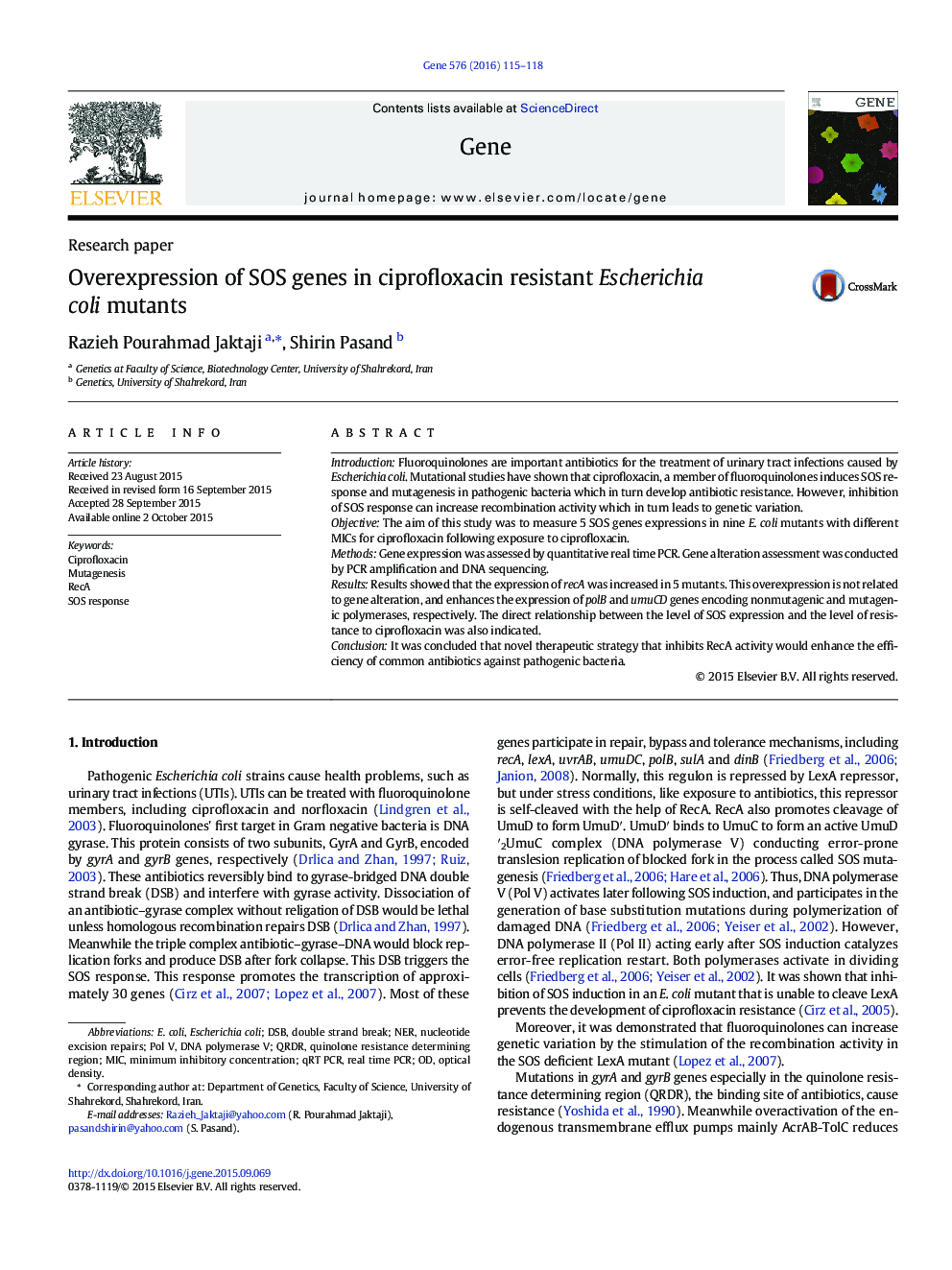| Article ID | Journal | Published Year | Pages | File Type |
|---|---|---|---|---|
| 2815307 | Gene | 2016 | 4 Pages |
•The expression of recA and lexA was measured by real time PCR in wild type and mutants with different levels of resistance to ciprofloxacin.•The overexpression of recA gene is not related to its alteration, but is related to the level of resistance.•The overexpression of recA leads to overexpression of umuCD and polB.•The overexpression of recA may lead to mutagenesis in strains with intermediate and high levels of resistance to ciprofloxacin.•The overexpression of lexA in mutants with high level of resistance to ciprofloxacin may regulate mutagenesis.
IntroductionFluoroquinolones are important antibiotics for the treatment of urinary tract infections caused by Escherichia coli. Mutational studies have shown that ciprofloxacin, a member of fluoroquinolones induces SOS response and mutagenesis in pathogenic bacteria which in turn develop antibiotic resistance. However, inhibition of SOS response can increase recombination activity which in turn leads to genetic variation.ObjectiveThe aim of this study was to measure 5 SOS genes expressions in nine E. coli mutants with different MICs for ciprofloxacin following exposure to ciprofloxacin.MethodsGene expression was assessed by quantitative real time PCR. Gene alteration assessment was conducted by PCR amplification and DNA sequencing.ResultsResults showed that the expression of recA was increased in 5 mutants. This overexpression is not related to gene alteration, and enhances the expression of polB and umuCD genes encoding nonmutagenic and mutagenic polymerases, respectively. The direct relationship between the level of SOS expression and the level of resistance to ciprofloxacin was also indicated.ConclusionIt was concluded that novel therapeutic strategy that inhibits RecA activity would enhance the efficiency of common antibiotics against pathogenic bacteria.
